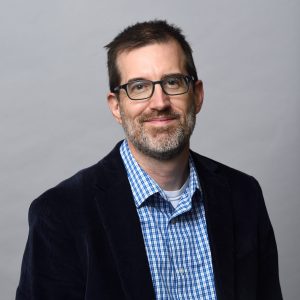
Benjamin W. Schafer
Developing and implementing sustainable energy solutions is critical to our planet’s future. As the founding director of the Ralph O’Connor Sustainable Energy Institute (ROSEI) it is my charge to maximize the contributions that Johns Hopkins University (JHU) makes to this complex, critical and global challenge.
Founded on Earth Day in 2021, ROSEI includes faculty from the Whiting School of Engineering (WSE), Krieger School of Arts and Sciences (KSAS), Applied Physics Laboratory (APL), School of Advanced International Studies (SAIS), Bloomberg School of Public Health (BSPH), and Carey Business School (CBS) all dedicated to sustainable energy.
Our faculty, many of which ROSEI has hired, are busy with great science, engineering, education, and policy for sustainable energy and climate change. Since ROSEI’s inception, our faculty have created new centers of excellence, won awards, spun out companies, and served the state and the nation – just look at our news page and follow us on LinkedIn for the latest. Our group of faculty is constantly growing and united in their alignment with ROSEI’s mission and vision to make a tangible difference. The research and work being done by our faculty is aided by the support of ROSEI’s dynamic and dedicated staff.
As ROSEI has grown it has developed specific areas of expertise: carbon management, energy storage, wind energy, and transformation of the electric grid. This is augmented by expertise in even wider areas – and grounded in cross-cutting efforts in community, education, policy, and translation. Now with more than a year of investment in each area, we can better see ROSEI’s role in solutions across all these areas.
Our work in carbon management, particularly in partnership with the Department of Energy’s ARPA-E program, has already spun out two companies – one working on cleanly converting natural gas to hydrogen at point of use, and one working on direct air capture of carbon. Numerous more opportunities and efforts exist in this area from the team including efforts on sustainable aviation fuel, creating food from air, and a variety of breakthroughs led by our chemists, chemical engineers, materials scientists and their colleagues and collaborators.
Our work in energy storage spans a remarkable partnership with APL. As one of the nation’s premier labs, APL has specific interest in stable, robust, solid state battery solutions. The ROSEI-APL partnership is investigating more sustainable storage solutions, and looking at integrated solar-storage solutions. With newly hired faculty now also participating in this area, we expect rapid developments in terms of ROSEI’s contributions to the critical energy storage challenges of the energy transition.
Our work in wind energy is a great example of the phenomenal partnerships that ROSEI has been able to develop since its formation. Working with the Pacific Northwest National Lab, ROSEI provides critical research support to their new Center of Excellence in floating offshore wind covering atmospheric modeling, ocean modeling, fluid mechanics at the wind farm and wind turbine scale, controls solutions, and structural innovations. We are also partnered with GE Vernova on wind energy research spanning similar areas. JHU’s longstanding strength in fluid and turbulence modeling is being leveraged as ROSEI provides open science solutions for wind energy. With several new proposed centers and projects and Maryland as a strong state partner, even more advances are expected in wind energy in the near term.
Our work in transforming the electric grid leverages the leadership of Ben Hobbs, the Theodore M. and Kay W. Schad Professor of Environmental Management, and our connection with the global group of scholars that are racing to put in place technologies, markets, and policies which will create a robust and reliable electrical grid capable of onboarding unprecedented amounts of intermittent renewable energy sources and scaling up the total amount of transmission to electrify society. This work involves numerous partnerships and the new National Science Foundation funded global center: EPICS (Electric Power Innovation for a Carbon Free Society). Spanning from electrical engineering to economics, ROSEI’s impact on successful transformation of the grid is only expected to grow.
ROSEI has made numerous efforts to bring the community of faculty, scientists, postdoctoral scholars, graduate students, and undergraduate students together. We lead education efforts in energy from high school through graduate school. We partner with the university to productively influence and inform policy, including working with Agora, supporting a new industrial policy lab, and participating in the build out of Hopkins newly announced school for public policy. We are working aggressively to build out our impact in translation, including creating a robust cohort of student entrepreneurs, supporting, and developing companies directly from the ideas of our faculty, and partnering with the university in translation.
Climate change is not an abstract problem, we are all living its effects in an increasing manner, year by year. While ROSEI is part of a research university, it is committed to making meaningful impact on sustainable energy solutions to address climate change. Every person participating in ROSEI is trying to do their part towards making a difference. If this resonates with you, then I encourage you to do your part within your own community, or consider either supporting or joining ROSEI! If you want to get involved, I encourage you to browse this site and learn more about our activities. You can also send an email to energy@jhu.edu.
Sincerely,
Benjamin W. Schafer
Director, Ralph O’Connor Sustainable Energy Institute (ROSEI)
Willard and Lillian Hackerman Professor, Civil and Systems Engineering
Johns Hopkins University
Please click here to see the “Message from the Director” when ROSEI was first founded.
